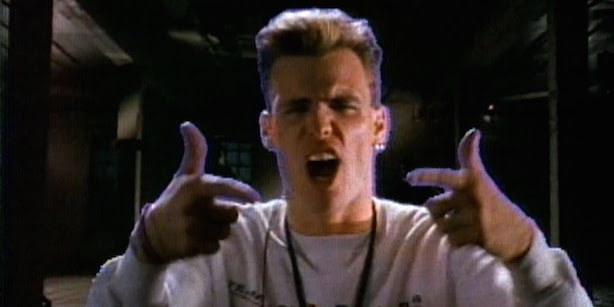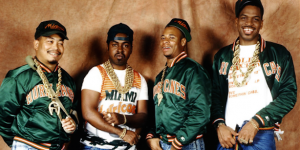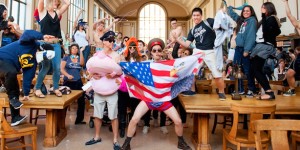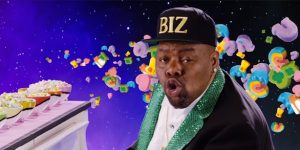 Music
Music
10 artists who were sued for unauthorized samples
by Jeremy Mersereau
November 10, 2015
From Baauer to Vanilla Ice, these artists thought no one would notice their uncleared source material.
Well before the era of Girl Talk, Creative Commons, and The Grey Album, artists were skirting copyright laws and neglecting to clear samples of others’ music. At the advent of sampling technology, laws surrounding the practice were nebulous at best, and it took several high-profile court cases over the years before renegade samplers and sonic outlaws were brought to heel by labels and rights holders.
Today, with sampling technology more affordable and user-friendly than ever, and the infinite frontier of the internet allowing for more legal loopholes, rights holders have more incentive to make sure they’re getting their cut. Be careful out there, musicians with a healthy disregard for intellectual property laws: If you’re peppering your Soundcloud productions with Grace Jones vocal snippets, you’re probably going to be fine… but only until one of your tracks blows up, “Harlem Shake” style. To help you decide whether or not it’s worth it to use that bonkers Dexter Wansel flip, here are 10 cases where artists got to sample some legal drama for unlicensed use of other people’s music.
The JAMs – “The Queen And I” (1987)
Whether you call them The Justified Ancients of Mu Mu, the JAMs, The Timelords, or just the KLF, Bill Drummond and Jimmy Cauty have had an undeniable influence on the practice of sampling, not to mention the course of popular music. As the JAMs, they used the then-novel digital sampler to cut up pieces of existing songs and reconfigure them into new forms (sound familiar?). Their first album, 1987 (What The Fuck Is Going On), was withdrawn from shelves after ABBA filed suit for the song “The Queen And I”, which extensively sampled “Dancing Queen”. Cauty and Drummond travelled to Sweden with the remaining copies of the album in tow, hoping to meet ABBA and convince them of the track’s artistic merit, but after being turned away, they burned the albums in a field and tossed the rest overboard on a North Sea ferry. They also released a new version of 1987 minus the uncleared material, resulting in an album full of long periods of silence. No doubt the KLF witnessed the rise of the information age and the mashup frenzy of the 2000s and felt gleefully vindicated.
M/A/R/R/S – “Pump Up The Volume” (1987)
One-off UK dance braintrust M/A/R/R/S scored big with their smash hit “Pump Up The Volume”, which contained an unauthorized sample from music production group Stock Aitken Waterman’s single “Roadblock”. The flip was so mutated from its original form that SAW didn’t realize they’d been sampled until they heard M/A/R/R/S member Dave Dorrell mention it during a radio interview. Future pressings of the “Pump Up The Volume” single omitted the sample after SAW slapped the Martians with an injunction.
2 Live Crew – “Pretty Woman” (1989)
Luther Campbell and his crew of party-rap ruffians kickstarted the modern era of sampling lawsuits when they were sued for using instrumental elements of Roy Orbison’s “Oh Pretty Woman” without permission for their parody/pisstake. The case went to the U.S Supreme Court in 1994, where they ruled in favour of 2 Live Crew, stating that their version was targeting “a different audience” (hmm…) than Orbison had been and that the Crew’s “Pretty Woman” constituted fair use as parody. Roy Orbison, hearing 2 Live Crew for the first time: “I say, what is this? This-ah makes me feel like Ooby Doobyin all ovah the place”.
Negativland – “U2”(1991)
You can’t talk about the history of sampling without including San Francisco audio pranksters Negativland. Their 1991 EP U2 saw the group use the Irish megastars’ music (and moniker in a prominent location on the cover) and included a profane, unaired rant from Casey Kasem. U2’s label Island quickly sued, saying that Negativland was deliberately trying to trick U2 fans into purchasing a new album called Negativland. The band released a book in 1995 about their legal struggles and the concept of fair use, called Fair Use: The Story of the Letter U and the Numeral 2.
Biz Markie – “Alone Again” (1992)
“Alone Again” is another landmark case in the history of sampling’s legality. Warner Bros. were forced to pull all copies of Biz Markie’s 1991 album I Need A Haircut from shelves after losing a lawsuit to Gilbert O’Sullivan, whose “Alone Again (Naturally)” had been looped as the basis for a beat. The court case marked the start of the crackdown on sampling, with the judge’s final opinion starting with the phrase “Thou shalt not steal.” With hip-hop gaining popularity and a higher profile daily, with the attendant financial gains, the Markie case sounded the death knell for the lawless, Wild West era of sampling. The first one, anyway.
Vanilla Ice – “Ice Ice Baby” (1990)
Rob Van Winkle originally tried to float the idea that he’d changed enough (well, one note) of Queen and Bowie’s iconic “Under Pressure” bassline that it constituted a brand new melody. Lawyers were unconvinced, resulting in both Queen and David Bowie receiving songwriting credits and royalties. Ice had the last laugh though: “Ninja Rap” was a mere year away, and would cement Ice’s legacy and importance forever. Oh, wait…
Shut Up And Dance – “Raving I’m Raving” (1992)
UK dance act Shut Up And Dance didn’t seek permission to use the iconic piano riff from Marc Cohn’s “Walking in Memphis” (later achieving even greater popularity thanks to Cher’s 1995 cover), and why would they? Legal authorities generally turned a blind eye to the goings-on of the underground rave scene… until “Raving I’m Raving” went to #2 on the UK Singles chart and Shut Up And Dance were in the public eye. Cohn sued for the unlicensed piano part and the original version of “Raving I’m Raving” was banned. There seems to have not been much bad blood however: Shut Up and Dance went on to contribute remixes to Cher’s cover and were allowed by Cohn to re-use samples (of the sample!) from “Raving”.
The Verve – “Bittersweet Symphony” (1999)
We all remember this one. One of the highest-profile (and most convoluted) cases of uncleared sampling ever, the Verve’s breakthrough life sucks anthem revolves around a five-note string sample from a 1965 Andrew Oldham Orchestra instrumental cover of The Rolling Stones’ “The Last Time”. The Verve did actually have a license to use the string riff sample, but former Stones manager Allen Klein claimed that the Verve used more than the agreed-on amount, resulting in the band being forced to modify the songwriting credit to include Jagger and Keith and losing 100% of the royalties to Klein. “We were told it was going to be a 50/50 split, and then they saw how well the record was doing. They rung up and said we want 100% or take it out of the shops, you don’t have much choice,” Verve bassist Simon Jones said of the whole ordeal.
Baauer – “Harlem Shake” (2012)
2012’s most inescapable viral dance craze contained unlicensed vocal samples of both Philadelphia rap group Plastic Little (they’re the ones exhorting the listener to do the Harlem Shake) and reggaeton artist Hector Delgado. After the track blew up and Baauer (a.k.a. Harry Rodrigues) said he’d found the sample sources “on the Internet”, both Delgado and Plastic Little realized that was their voices soundtracking a million dorm room YouTube videos, and they should probably see some compensation. The samples were eventually cleared, but Baauer told Pitchfork in 2013 he had yet to see any money from his global smash.
Jay Z – “Big Pimpin” (1999)
“I didn’t think there was a sample in it,” Jay-Z said, in court, of his 1999 hit. It’s not hard to understand why Timbaland would hide the fact he sampled Egyptian composer Baligh Hamdi’s “Khosara Khosara”: the sample bangs, and more than a few producers are content to let rappers and singers think that a fire melody like that is 100% original. Though the “Big Pimpin’” sample was eventually properly cleared and credited, a relative of Hamdi’s still sued, claiming that by altering the original recording of “Khosara Khosara” and adding vulgar lyrics, Jay-Z had violated Hamdi’s “moral rights.” The suit was recently tossed out without going to jury, but Hamdi’s nephew is appealing. Sometimes, even properly licensing a loop won’t save you from legal entanglements.
Tags: Music, Lists, 2 live crew, baauer, Biz Markie, Jay-Z, klf, m/a/r/r/s, negativland, shut up and dance, the verve, Vanilla Ice





